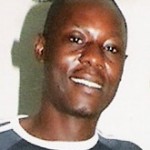As the Thanksgiving holiday approaches, we wanted to pause and give thanks to our members and supporters for helping to make freedom and justice possible for countless people this past year. Here are some highlights of the successes and progress you helped to make possible.
Release of prisoners of conscience
Facing calls from around the world, governments released numerous prisoners of conscience in 2012. From a young activist in Azerbaijan who protested the government, to a student in Cameroon who was imprisoned on charges of “homosexuality” to an Egyptian blogger who criticized the army’s abuse of peaceful protest, the power of your voices helped open prison doors for individuals at risk around the world.
A visit from a human rights hero
 On her first visit to the U.S. in more than 20 years, Burmese democracy leader, Nobel Peace Prize winner and Amnesty Ambassador of Conscience Daw Aung San Suu Kyi joined Amnesty International USA to inspire the next generation of human rights activists in a town hall meeting with young people at Washington, D.C’s Newseum. We were both grateful and humbled by her presence.
On her first visit to the U.S. in more than 20 years, Burmese democracy leader, Nobel Peace Prize winner and Amnesty Ambassador of Conscience Daw Aung San Suu Kyi joined Amnesty International USA to inspire the next generation of human rights activists in a town hall meeting with young people at Washington, D.C’s Newseum. We were both grateful and humbled by her presence.


